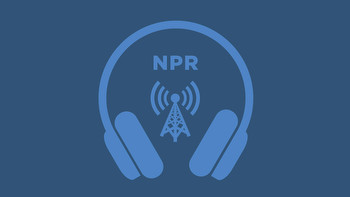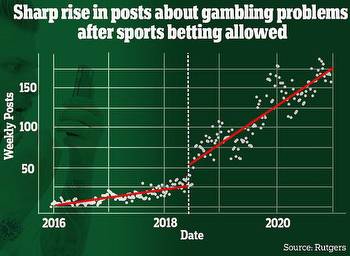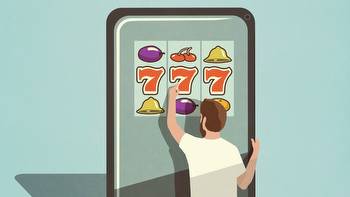The Rise in Mobile Gambling Isn't Good for Anyone

Over the last two decades, the number of states that allow casinos has more than doubled, from nine in 2001 to 20 today. That rise has followed a jump in legalized sports betting and, critics say, a sharp jump in the number of people struggling with a gambling addiction — especially young people. As gambling leaves the realm of seedy casinos for the relatively bright space of smartphone apps, the number of young people developing a gambling addiction is on the rise.
The National Council on Problem Gambling found that 40 percent of people ages 18-44 gambled online last year, more than double the rate of those ages 45-54. A quarter of young people say they started gambling online more during the Covid pandemic.
The trouble, experts say, is the ease and relative secrecy of gambling online and with your smartphone. It’s not only easier to spend all day placing bets on a fun, engaging app than an Atlantic City slot machine, but also it’s easier to hide the habit from your friends and family. Vice Magazine found numerous stories of men who opened secret checking accounts and opened new credit cards just to keep their gambling addiction hidden from their families. And the secret tends to stay hidden — Keith Whyte, executive director for the National Council on Problem Gambling, told Vice that less than one percent of gambling addicts seek help.
Politicians argue that the rise in legalized gambling helps bring in state revenue and provides oversight for corrupt practices. The former is definitely true, but the latter is only theoretically the case. Activists say it’s not clear the state takes its role as a watchdog of gambling organizations seriously, tending to blame individuals instead of rein in predatory business practices that prey on people with addiction issues. And right now, young people are paying the price.




































